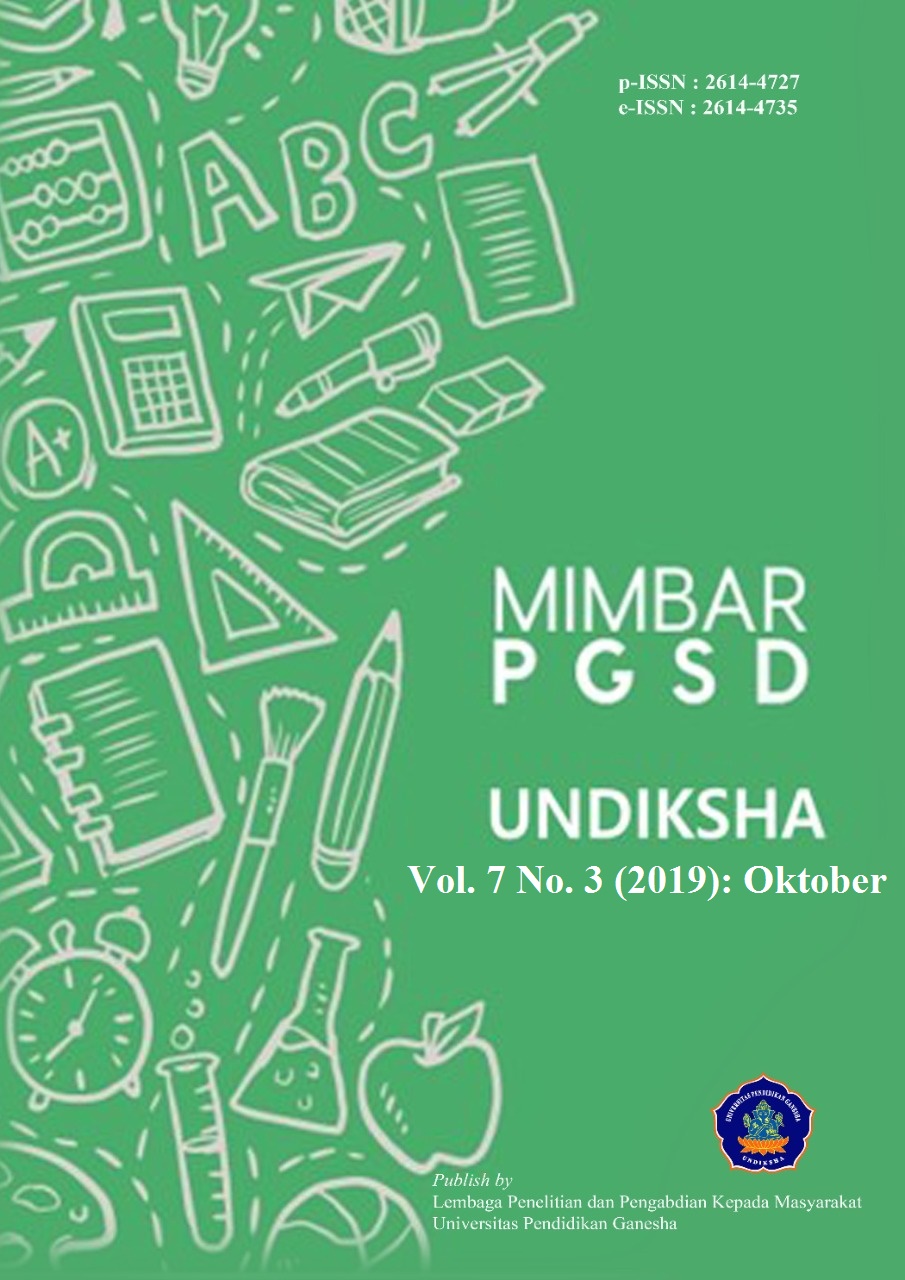Strategi Pembelajaran Card Sort Terhadap Hasil Belajar
DOI:
https://doi.org/10.23887/jjpgsd.v7i3.19401Abstract
Permasalahan dalam penelitian ini adalah hasil belajar siswa dalam pembelajaran Matematika terdapat 50% masih di bawah KKM. Hal ini dikarenakan guru masih menggunakan metode ceramah dan pembelajaran terfokus dengan buku siswa sehingga siswa bosan, tidak memperhatikan guru dalam proses pembelajaran. Tujuan dalam penelitian ini adalah untuk mengetahui keefektifan strategi pembelajaran Card Sort terhadap hasil belajar dan minat belajar siswa kelas II SDN Ngesrep 01 Semarang pada materi bangun datar. Metode penelitian menggunakan Pre-Experimental Design dengan jenis One Group Pretest-Posttest. Hasil belajar nilai rata-rata siswa sebelum diberikan perlakuan pretest sebesar 62,5 dan nilai rata-rata siswa sesudah diberikan perlakuan posttest sebesar 75,54. Setelah diberi perlakuan dengan menggunakan strategi card sort nilai rata-rata hasil belajar siswa mengalami peningkatan sebesar 13,04. Rata-rata minat belajar siswa yaitu 73 % dan dapat dikategorikan dalam tingkat minat belajar yang baik. Oleh karena itu dapat disimpulkan bahwa strategi pembelajaran card sort efektif terhadap hasil belajar dan minat belajar siswa kelas II SDN Ngesrep 01 Semarang.
Kata kunci: Strategi Card Sort, Hasil Belajar, Minat Belajar
Downloads
Published
How to Cite
Issue
Section
License
Authors who publish with the Mimbar PGSD Undiksha agree to the following terms:
- Authors retain copyright and grant the journal the right of first publication with the work simultaneously licensed under a Creative Commons Attribution License (CC BY-SA 4.0) that allows others to share the work with an acknowledgment of the work's authorship and initial publication in this journal.
- Authors are able to enter into separate, additional contractual arrangements for the non-exclusive distribution of the journal's published version of the work (e.g., post it to an institutional repository or publish it in a book), with an acknowledgment of its initial publication in this journal.
- Authors are permitted and encouraged to post their work online (e.g., in institutional repositories or on their website) prior to and during the submission process, as it can lead to productive exchanges, as well as earlier and greater citation of published work. (See The Effect of Open Access)













